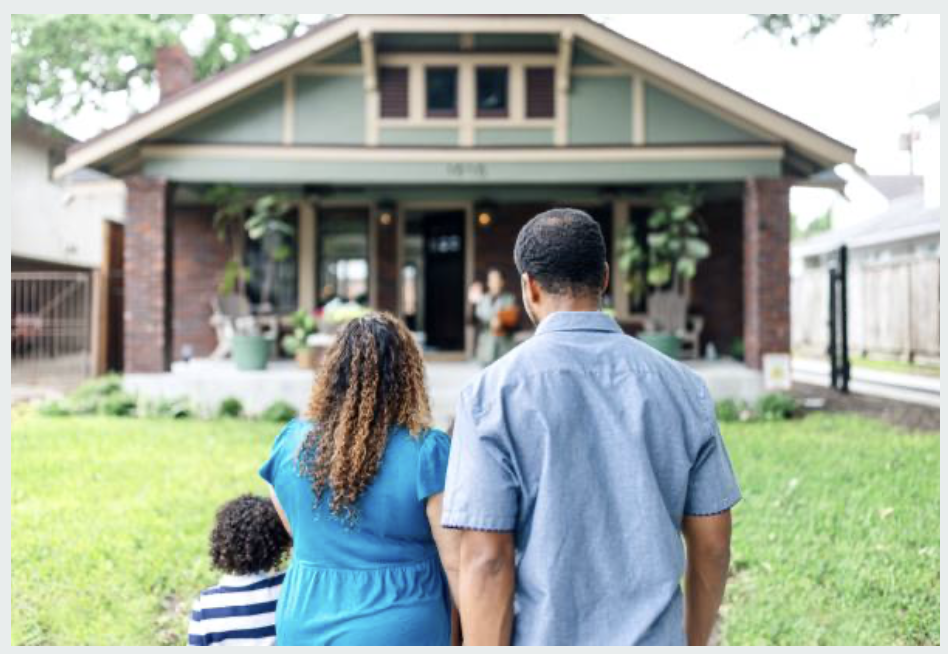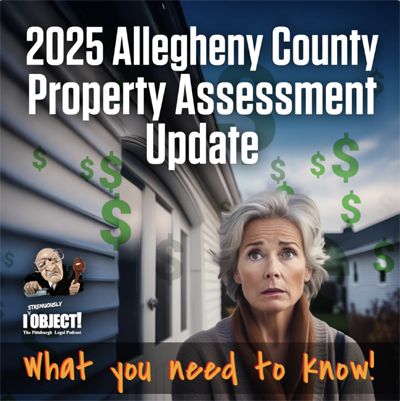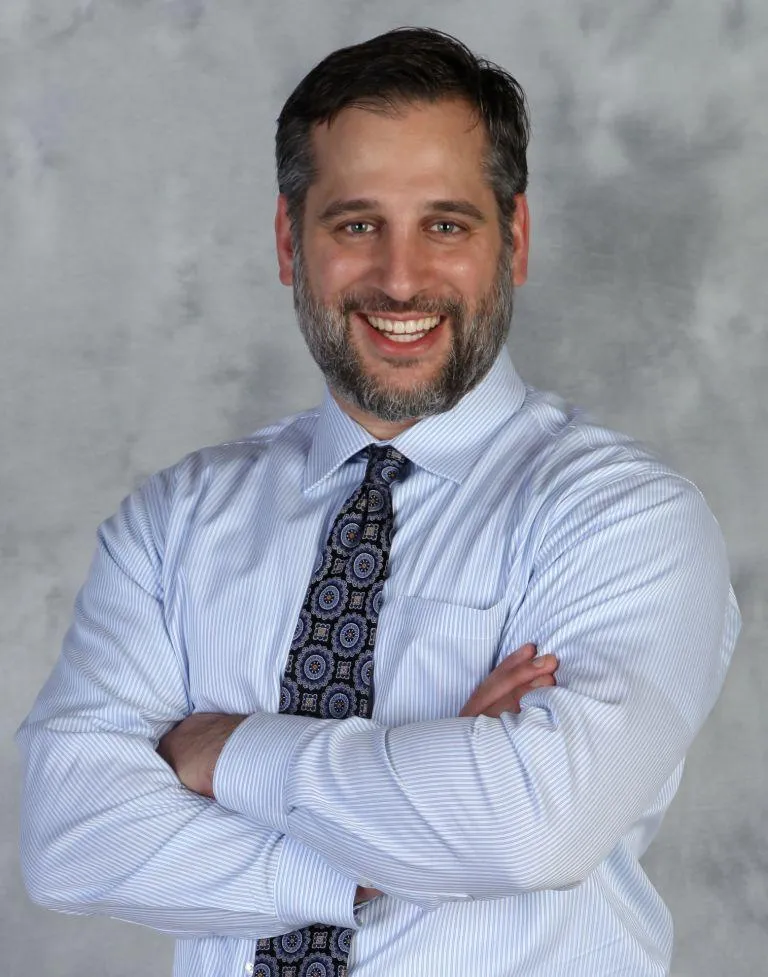
Pittsburgh Car Accident Lawyers – Proven Results, Trusted Experience
Injured in a car accident? Don’t face insurance companies alone.
For more than 25 years, the attorneys at Flaherty Fardo Rogel & Amick have fought for accident victims and their families throughout Pittsburgh and Western Pennsylvania. We combine relentless work ethic, a team-based approach, and personal attention to every client. When we accept a case, we commit fully — treating it as if it’s our only case.
📞 Free Consultation – No Fee Unless We Win
Available 24/7. Call us today or fill out the form to get started.
After a Car Accident: What You Should Do
The moments after a crash are stressful and confusing. Protect your health and your rights with these steps:
- Get to safety first.
- Check for injuries and call 911 – safety always comes first.
- Seek medical care immediately, even if you don’t feel seriously hurt.
- Contact the police to create an official accident report.
- Gather information – photos, witness names, insurance details.
- Do not admit fault at the scene.
- Call an experienced lawyer before speaking with insurance companies.
Why Choose Flaherty Fardo Rogel & Amick?
- Over 25 years of experience helping car accident victims across Pennsylvania.
- Millions recovered in verdicts and settlements.
- Proven results in jury trials and large settlements.
- Experience with accidents on the Pennsylvania Turnpike, I-79, I-80, Bigelow Boulevard, Route 22 (Murrysville), Route 65 (Sewickley Borough), 376 East & West, and throughout Pittsburgh.
- Skilled in handling cases with limited or no insurance coverage, including uninsured and underinsured motorist claims.
- Local knowledge of courts and communities across Allegheny, Beaver, Butler, Westmoreland, Washington, Fayette, Lawrence, and Erie Counties.
- Team approach: Attorneys Noah Fardo, Bill Rogel, and Jaclyn DiPaolo work closely together on every case.
- Personal service: We take the stress of insurance and legal issues off our clients so they can focus on healing.
How We Build Winning Car Accident Cases
Every case is unique, but our approach is consistent:
- Thorough investigation. We immediately gather evidence, witness statements, and medical documentation.
- Expert resources. In one recent case, we hired an accident reconstructionist after police failed to take full measurements at the scene. Their report proved the defendant was speeding, changing liability and leading to a successful recovery.
- Early pressure. We often recommend filing suit quickly to secure your place in line and apply pressure, while still working toward amicable resolution if it benefits the client.
- Courtroom-ready. Insurance companies know we are willing and prepared to try cases before a jury.
Types of Car Accident Cases We Handle
- Car collisions (rear-end, T-bone, head-on).
- Truck and commercial vehicle accidents.
- Motorcycle accidents.
- Pedestrian and bicycle accidents.
- Drunk or distracted driving crashes.
- Fatal accidents and wrongful death claims.
Compensation We Fight For
Victims of car accidents may be entitled to recover:
- Medical expenses (past and future).
- Lost wages and reduced earning capacity.
- Physical Pain and suffering.
- Emotional Pain and suffering.
- Property damage.
- Wrongful death benefits for surviving family members.
Mistakes to Avoid After a Car Accident
- Don’t admit fault at the scene.
- Don’t post about the accident on social media.
- Don’t sign insurance papers or releases without legal advice.
- Don' give a statement without speaking with counsel first.
- Don’t delay getting medical treatment — gaps in care can hurt your case.
- When you do receive medical treatment, list your complaints accurately and focus on them.
Real Results for Our Clients
- $2.3 Million for a pedestrian struck by a vehicle.
- $2 Million+ recovery in a Pennsylvania Turnpike (Beaver County) highway crash.
- $1 Million settlement PA I 76 East.
Every case is different, but our commitment to clients never changes.
Frequently Asked Questions
Do I have a case if the accident wasn’t my fault?
Yes. If another driver’s negligence caused your injuries, you may be entitled to compensation — even if the insurance company tries to deny responsibility.
How long do I have to file a claim in Pennsylvania?
Generally, two years from the date of the accident, but exceptions exist. It’s best to contact a lawyer quickly to avoid missing important deadlines.
What if the other driver doesn’t have insurance?
You may still recover under your own uninsured or underinsured motorist coverage. We have extensive experience handling these complex claims.
What does it cost to hire your firm?
We work on a contingency fee. That means no upfront costs — you pay nothing unless we recover money for you.
Take the First Step Today
You don’t need to face medical bills, lost wages, and aggressive insurance adjusters alone. We are lifelong Pittsburgh attorneys who know the roads, the courts, and the people of Western Pennsylvania. For over two decades, our firm has built its reputation on hard work, honesty, and results.
📞 Call us now for a free consultation.
Our team is here to listen, guide you through the process, and fight for the compensation you deserve.
Car Accidents
FAQ
Chapter 1.1 - Understanding Pennsylvania Car Accidents and The Law
1. What should I do immediately after a car accident in Pittsburgh?
Immediately after a car accident, the first and most important priority is your health and safety, and the health and safety of everyone involved — no matter who is at fault. The safety of all parties should always come first.
Steps to take right away:
- Check for injuries to yourself, passengers, and others involved.
- Call 911 immediately if anyone is injured or if there is significant vehicle damage.
- If you are unsure whether to call the police, err on the side of contacting them. Police can:
- Document what happened for purposes of determining liability.
- Assist in assessing whether medical care is necessary.
- Move vehicles out of traffic if it is safe to do so.
- Never leave the scene until permitted by police.
- Exchange insurance and contact information with all drivers involved.
- Take photos of the accident scene, vehicles, road conditions, and any visible injuries.
- Get names and contact information of witnesses who saw the accident.
Medical follow-up:
- Even if you feel fine, see a doctor promptly. Many injuries — such as concussions, whiplash, or internal injuries — may take hours or even days to appear.
- Early evaluation helps protect both your health and your potential legal claim.
Things NOT to do:
- ❌ Don’t admit fault — even casually. Fault will be determined later based on evidence.
- ❌ Don’t threaten a lawsuit at the scene.
- ❌ Don’t fight or argue with the other driver — it can escalate the situation and harm your claim.
- ❌ Don’t lose awareness of your surroundings — stay alert to traffic, hazards, and your personal safety.
Yes. Even if damage looks small, having the police document it can be the difference between winning and losing your claim. Without a report, it’s just your word against the other driver’s.
Pennsylvania law adds another requirement: under 75 Pa.C.S. § 3747, if police do not investigate an accident that legally required reporting, you must file a written accident report with PennDOT within five days. That report is confidential and cannot be used as evidence in court (except in narrow circumstances), but it protects you from later accusations of failing to report.
So even in “minor” crashes, documentation is critical.
Yes. Some of the most serious injuries—neckinjuries, concussions, whiplash—don’t show symptoms until days or weeks later.I represented a new mom who told everyone she was “fine” at the scene. Monthslater, she was in serious pain with restricted movement. We secured a strongsettlement, but the defense hammered her for not treating earlier. Protectyourself. Get checked.
Call the police immediately and document everything you can. Pittsburgh juries value honesty—they can smell dishonesty a mile away. What you say and do after a hit-and-run matters. Your uninsured motorist coverage may apply, but these claims require careful handling.
Fault is based on evidence: the police report, witness statements, photos, sometimes accident reconstructions. Don’t assume that what someone admits at the scene will stick. Stories change. Documentation doesn’t.
Pennsylvania follows modified comparative negligence with a 51% bar
- If you are 51% or more at fault, you cannot recover damages.
- If you are 50% or less at fault, you can recover—but your award is reduced by your share of fault.
For example, $100,000 in damages with 20% fault =$80,000 recovery.
What is the difference between “limited tort” and “full tort” insurance?
- Full tort: You can recover for both economic damages (medical bills, lost wages) and non-economic damages (pain and suffering)
- Limited tort: You generally cannot recover for pain and suffering unless your case qualifies for an exception.
Exceptions include:
- Serious injury (death, permanent impairment, disfigurement)
- Drunk driver accidents
- Pedestrians, bicyclists, and motorcyclist
- Commercial or out-of-state vehicles
- Accidents with uninsured drivers
We’ve had countless clients blindsided by limited tort. Always know what you bought.
Yes. As long as you were 50% or less at fault, you can recover, but your award is reduced by your share of responsibility. If you are 51% or more at fault, you are barred from recovery.
Chapter 2 – Insurance & Claims
No. Adjusters are professional negotiators. You won’t talk your way into a better settlement, but you can absolutely talk your way into hurting your claim.
The bigger issue isn’t whether your premiums rise—it’s whether you’re properly compensated. I’ve seen clients offered $2,500to settle when their claims were worth $50,000 or more. Don’t leave money on the table worrying about premiums.
This is where uninsured/underinsured motorist coverage (UM/UIM) comes in. These cases are often the single largest source of recovery in serious accidents. Many times, we’ve had to file lawsuits against our clients’ own insurance companies to enforce their UIM coverage. It feels backwards, but it’s how the system works.
Pennsylvania drivers are required to carry at least $5,000 in medicalbenefits coverage. Your own PIP pays for your medical bills up to your policylimit, regardless of fault.
Never. Recorded statements exist for one reason: to be used against you. I’ve seen innocent, offhand remarks repeated back to clients in court to minimize their injuries. There is no upside.
Coverage can include medical bills, lost wages, property damage, rental carcosts, and in certain cases pain and suffering.
There’s no set deadline. In practice, insurance companies delay as long as possible. They count on injured people getting discouraged—or worse, dying—before the claim is resolved. That’s why pushing cases forward matters.
Chapter 3 – Medical Treatment & Documentation
Yes. If your symptoms don’t get documented, the defense will argue they never happened.
As soon as you notice symptoms. Delays weaken claims, but better late than never. Always be honest, but don’t minimize what you’re feeling.
Pennsylvania is a no-fault state for medical bills. Your own insurance pays first through your PIP (Personal Injury Protection) coverage, regardless of who caused the crash.
An IME is supposed to be a neutral exam, but we call them DMEs—Defense Medical Exams. In 25 years, I’ve never seen one that wasn’t biased. We often send a nurse or advocate with clients to make sure the exam is fair.
Medical records, bills, accident reports, photos, witness statements, and proof of lost wages are all critical.
Yes. We’ve structured annuities for clients—including children—to cover ongoing or future medical costs. These are often vital in serious injury cases.
Chapter 4 – Hiring a Pittsburgh Car Accident Attorney
No. But if you’re seriously injured, you absolutely do. Insurance companies know who the serious trial lawyers are. Representation changes everything.
The earlier the better. We’ve had adjusters treat cases very differently the moment they know our firm is involved. Early involvement means stronger evidence, better documentation, and more leverage.
Look for experience, results, and honesty. Ask lawyers what kinds of cases they’ve taken to trial. Ask about past settlements. And make sure they listen to you.
Accident reports, medical records, insurance information, photos, and a list of your doctors. But don’t stress—we can help gather documents if you don’t have everything.
We work on contingency. That means no up front fees you don’t pay unless we recover money for you.
A percentage of your recovery, agreed to upfront. If we don’t win, you don’t pay.
Yes. Always.
Chapter 5 – The Legal Process
Two years from the date of the accident. For minors or cases where the injury wasn’t immediately discoverable, exceptions apply.
We file a complaint in court, the defense responds, and discovery begins. Cases may go through mediation or arbitration before trial.
Most settle. But the only way to get a fairsettlement is to prepare for trial. Insurance companies only pay full value ifthey believe they’ll lose in court.
It depends on the complexity of the case, injury recovery time, and whether it goes to trial. Some settle in months; others take years.
Yes, if you have full tort coverage or meet a limited tort exception.
Your attorney can negotiate further, file a lawsuit, or pursue arbitration / mediation if applicable.
Mediation is a structured negotiation with a neutral mediator. Arbitration is like a mini-trial. Both can be useful, but I prefer virtual mediation so clients don’t get trapped in long, draining sessions. If the defense asks for mediation, we often require them to pay the cost if it fails.
Chapter 6 – Compensation & Damages
Case value is fluid. It depends on your recovery, your medical needs, your lost income, and how a jury might view your pain. I usually give ranges, not hard numbers, because values move as the case develops.
Severity of injury, length of recovery, lost wages, future losses, credibility, and how well the case is prepared for trial.
Yes. Past and future lost wages are often major parts of recovery. We’ve had cases where the biggest fight was over future income loss—especially for younger workers with overtime-heavy jobs.
Yes. Property damage is part of your claim, though it’s often handled separately from injury compensation.
Punitive damages punish reckless, outrageous conduct—like drunk driving. They aren’t available in every case, but when the facts justify them, we pursue them.
Chapter 7 – Special Situations
Passengers have the same rights as drivers. You can pursue claims against whichever driver was at fault—or both.
We’ve handled many of these cases. Police involvement is crucial. Juries take drunk driving seriously, and punitive damages may apply.
Rideshare cases involve corporate insurance policies, and coverage depends on whether the driver was logged into the app. These claims can be complex, but the insurance limits are usually higher than in private cases.
We’ve handled trucking cases on the PA Turnpike,I-376, I-79, and throughout Allegheny and Beaver Counties. These cases often involve multiple layers of corporate insurance and require aggressive discovery.
Liability can be shared among multiple drivers. Evidence and reconstruction are key. We’ve handled chain-reaction crashes where determining fault required expert analysis.
Motorcycle accidents almost always involve more severe injuries, and limited tort doesn’t apply to motorcyclists.
Chapter 8 – Protecting Your Rights
Don’t admit fault. Don’t skip medical care. Don’t post about your accident on social media.
No. Even positive posts like “Feeling better today!” can be used against you. Insurance companies comb social media looking for ways to minimize claims.
Once you sign, your claim is over. You can’t reopen it. That’s why you should never sign anything without talking to a lawyer.
Preparation. The best settlements come when the defense knows we’re ready to try the case. A case prepared for trial almost always settles higher.
It’s rare, but it happens. After 25 years, I can say disagreements are uncommon once trust is built. Our job is to give honest advice; the final choice is always yours.













